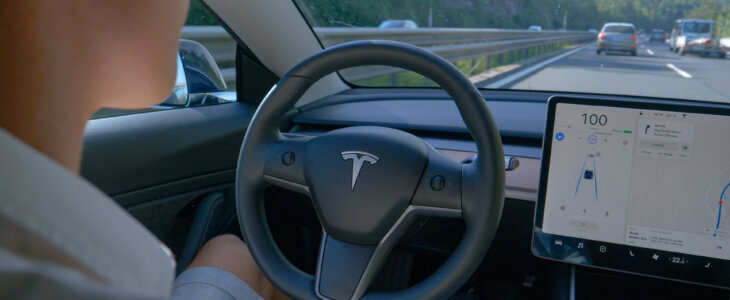The companies that make self-driving cars, also known as autonomous vehicles, sell them on the promise that they will revolutionize transportation. In theory, they’ll save lives by removing human error from driving. But they aren’t quite there yet—and they may never be.
So far, self-driving cars have only introduced legal complexity instead of introducing safety improvements. If an autonomous vehicle causes an accident, who’s liable? Is it the manufacturer, the “driver,” or another party?
California has been a leader in promoting the development and testing of self-driving technology. It has also passed laws that outline how to determine liability for autonomous vehicle accidents. But this is only the beginning. As technology changes, the current laws may need to change alongside it.
Manufacturer and Software Developer Liability
To many, the obvious answer is that manufacturers and software developers are liable for autonomous vehicle accidents. After all, they design, develop, and produce the physical cars and the software that controls them.
Indeed, in some cases, these parties may be liable. If a defect in the design, manufacturing, or software caused the accident, they could be liable under California’s product liability laws.
For example, let’s say a vehicle sensor malfunctions, causing the car to speed up when it should be slowing down. If this leads to an accident, the defective sensor could place liability on the manufacturer or software developer.
Human Operator Liability
According to California’s Vehicle Code, self-driving cars still require a human operator, or “driver.” This operator must:
- Be present within the vehicle
- Monitor the vehicle’s safe operation
- Be able to take control in the event of a failure
- Have the required license to operate the vehicle
Because of these four requirements, the operator could be responsible for an accident. They may be liable if the vehicle alerted the operator of a failure or if they needed to take control but didn’t.
Comparative Fault Liability
California is a comparative fault state that splits liability between all at-fault parties.
For example, let’s say that a sensor failed to detect a pedestrian crossing the road, and the self-driving car hit them as a result. The manufacturer or software developer may be liable. But, the operator may also be liable because they failed to intervene.
Remember, the operator must pay attention in case something goes wrong. So, in this case, the manufacturer and operator may each be 50% liable. The exact percentage could change based on the nature of the failure or what the operator was doing at the time.
Insurance Requirements
California treats autonomous vehicles the same as human-operated vehicles regarding insurance. Someone who owns a car that has a self-driving mode still needs insurance. Liability insurance policies in California must cover at least:
- $15,000 per person for bodily injury/death
- $30,000 per accident for bodily injury/death
- $5,000 for property damage
Future Considerations
As self-driving technology evolves, so will the laws surrounding it. For now, most autonomous vehicles aren’t entirely autonomous. They’re normal vehicles with limited autonomous capabilities built on top of them.
However, as fully autonomous vehicles become more common, the laws will need to reflect that. Will autonomous vehicles have artificial intelligence built into them to make decisions? Will there need to be specific legal categories for self-driving car accidents? We’ll have to wait and see how this plays out.
Our Walnut Creek Car Accident Lawyers Can Help
Have you been injured in a self-driving car accident in Walnut Creek? The attorneys of Casper, Meadows, Schwartz, & Cook can help you seek the compensation you deserve.
Our team’s experience includes litigation against individual motorists, and product liability claims against manufacturers. Let us handle the legal complexities while you focus on your recovery. Contact us today for a free consultation and to begin your case.

